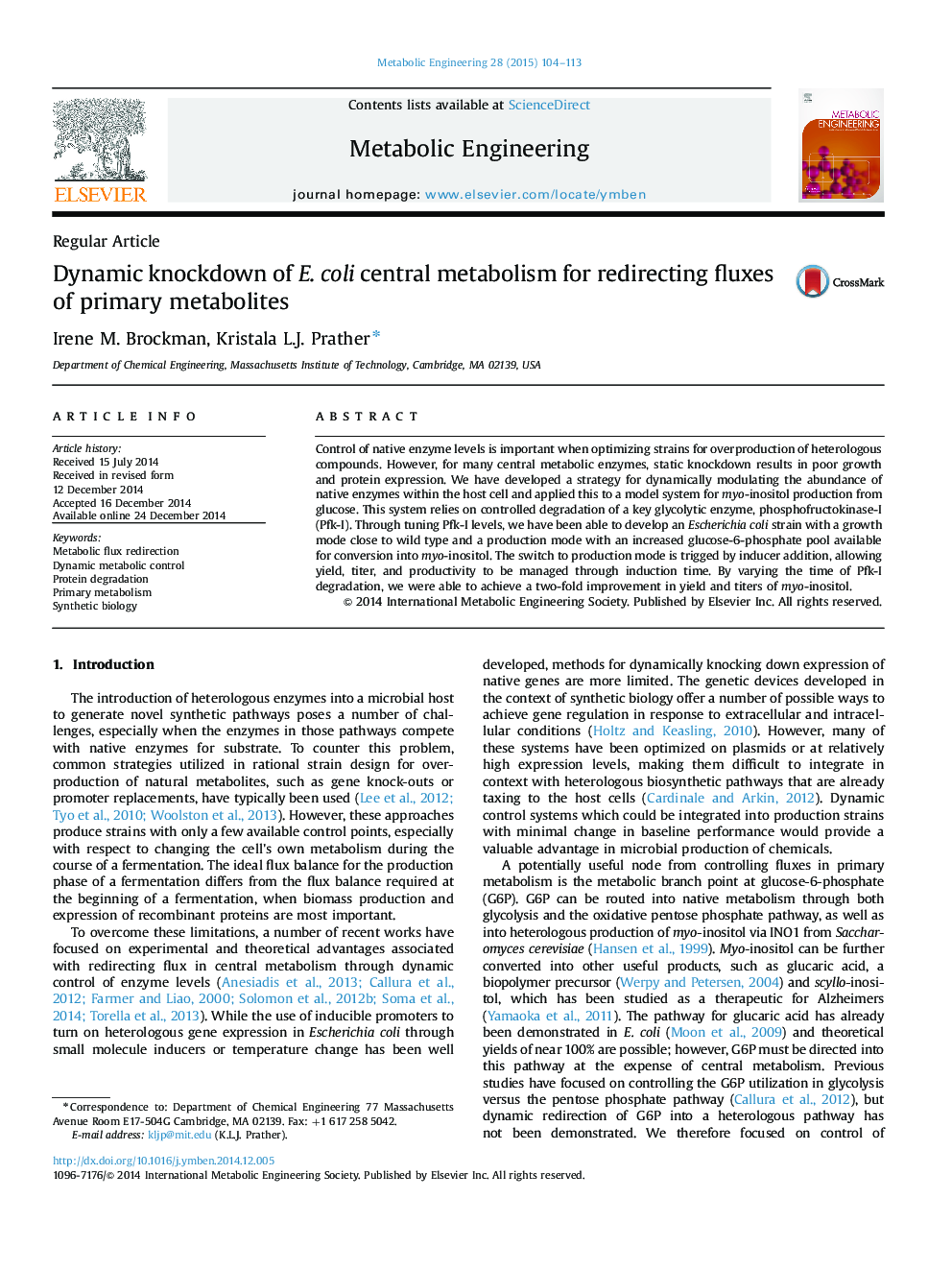| Article ID | Journal | Published Year | Pages | File Type |
|---|---|---|---|---|
| 6494453 | Metabolic Engineering | 2015 | 10 Pages |
Abstract
Control of native enzyme levels is important when optimizing strains for overproduction of heterologous compounds. However, for many central metabolic enzymes, static knockdown results in poor growth and protein expression. We have developed a strategy for dynamically modulating the abundance of native enzymes within the host cell and applied this to a model system for myo-inositol production from glucose. This system relies on controlled degradation of a key glycolytic enzyme, phosphofructokinase-I (Pfk-I). Through tuning Pfk-I levels, we have been able to develop an Escherichia coli strain with a growth mode close to wild type and a production mode with an increased glucose-6-phosphate pool available for conversion into myo-inositol. The switch to production mode is trigged by inducer addition, allowing yield, titer, and productivity to be managed through induction time. By varying the time of Pfk-I degradation, we were able to achieve a two-fold improvement in yield and titers of myo-inositol.
Related Topics
Physical Sciences and Engineering
Chemical Engineering
Bioengineering
Authors
Irene M. Brockman, Kristala L.J. Prather,
